Treat foreskin inflammation and acorn inflammation - causes, symptoms and effective measures.
Foreskin inflammation and acorn inflammation are unpleasant complaints that occur in three to eleven percent of all men during their lifetime. In medical terminology, these inflammations are called balanoposthitis when they occur simultaneously. They can have different causes and be manifested by different symptoms. In the following, you will learn more about how you can treat foreskin inflammation or acorn inflammation.
What is foreskin inflammation and acorn inflammation?
Foreskin inflammation (lat.Posthitis) is the inflammation of the foreskin of the penis. Often the inflammation affects not only the foreskin, but also the glans (lat.Balanitis). An inflammation of the glans without involvement of the foreskin, on the other hand, is rather rare. The causes of inflammation of the prepuce can be different.
GenitPlus - Anti-inflammatory intimate care
The GenitPlus washing emulsion supports you in the fight against inflammation in the intimate area.
Antibacterial thanks to tea tree oil
Especially for the male intimate area
Developed by urologists and dermatologists
- Regular price
-
CHF 23.80 - Regular price
-
- Selling price
-
CHF 23.80
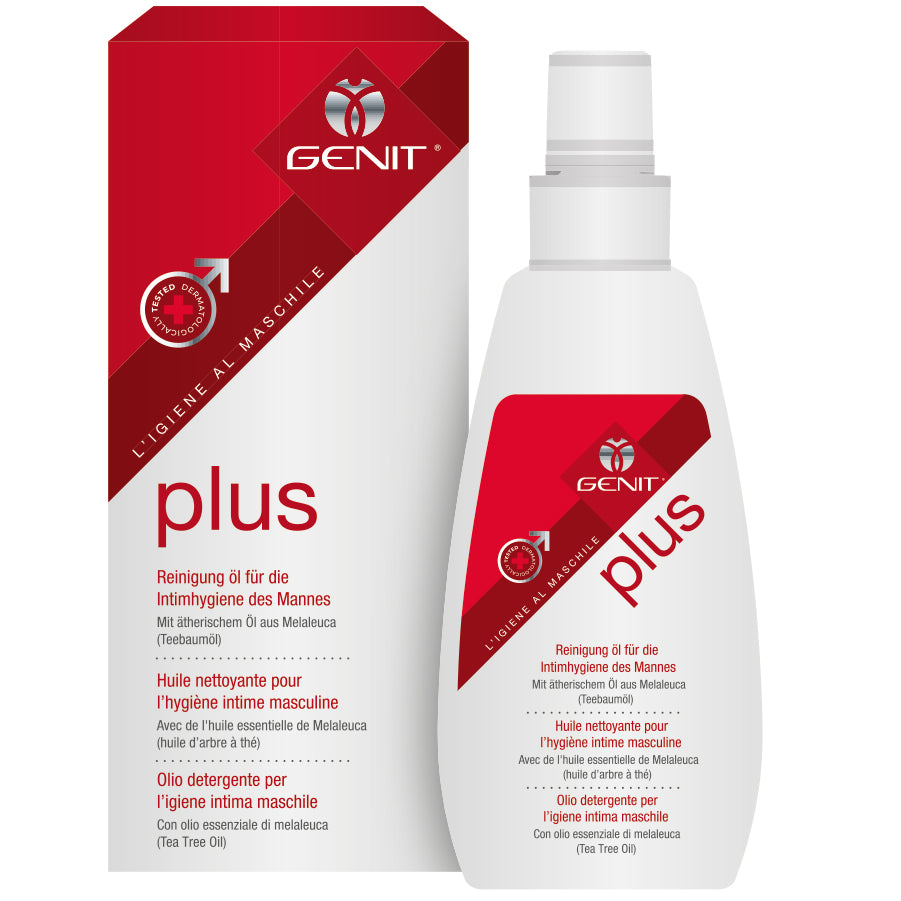
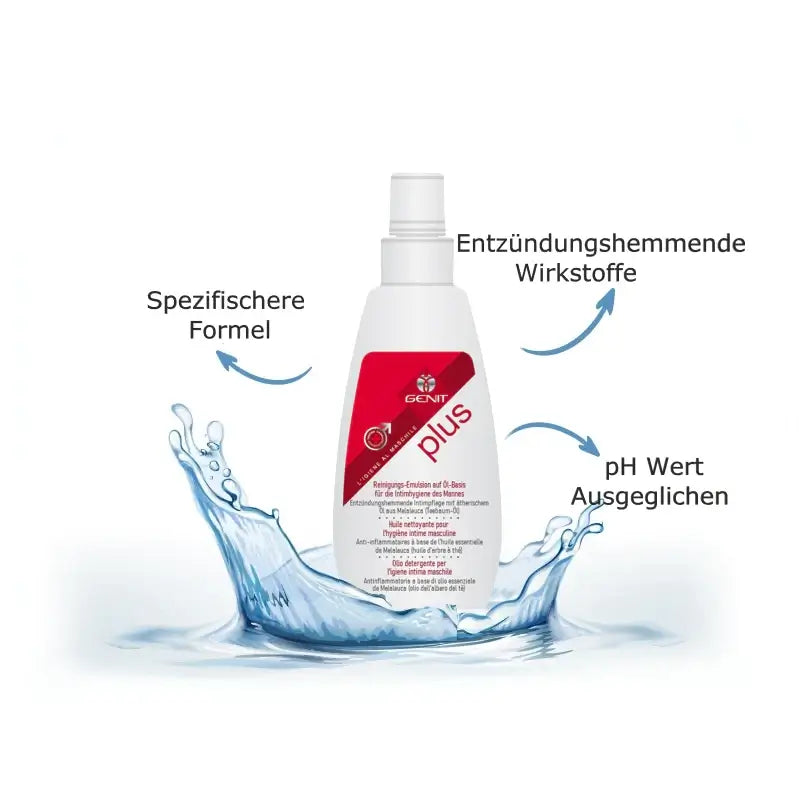
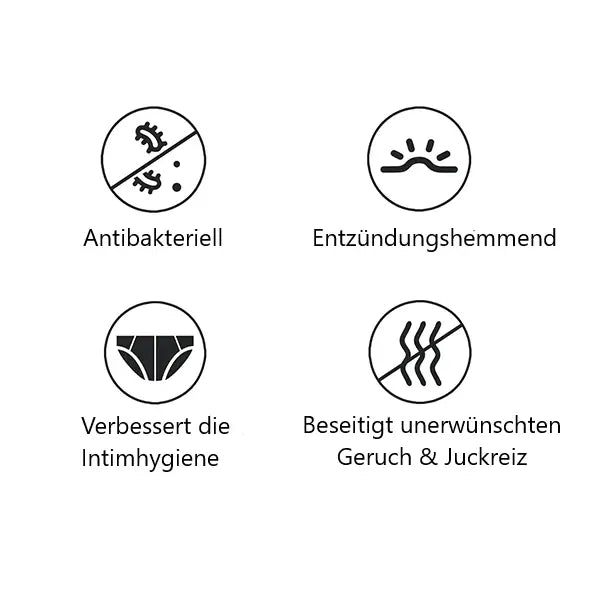
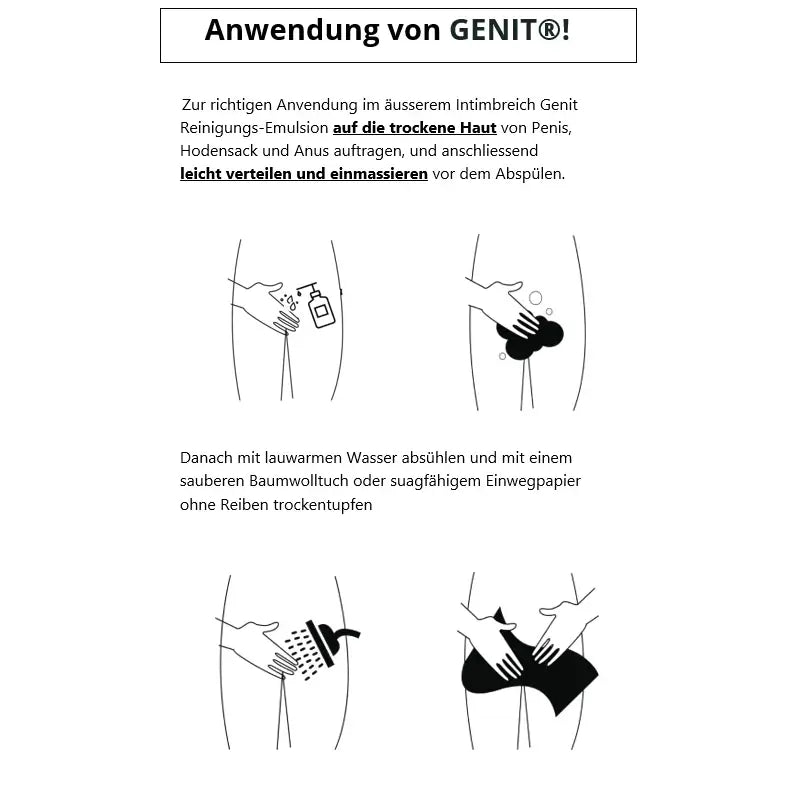
Causes and triggers of inflammation
There are various causes that can trigger foreskin inflammation or acorn inflammation. Among the most common are bacterial or fungal infections. But friction from tight clothing or excessive masturbation can also cause the skin to become irritated and inflamed. Allergic reactions to certain substances can also play a role.
Bacterial infections
Bacterial infections are a common cause of foreskin inflammation and acorn inflammation. These can be triggered by various types of bacteria, such as streptococci or staphylococci. Sexually transmitted infections such as chlamydia or gonorrhea can also lead to inflammation of the foreskin or glans.
Fungal infections
Fungal infections are also a common cause of foreskin inflammation and glans inflammation. It is usually yeasts that trigger these inflammations, especially Candida albicans. These fungi normally colonize the skin and mucous membranes, but can grow and spread more if the balance is disturbed.
Friction due to tight clothing or excessive masturbation
Friction from tight clothing or excessive masturbation can cause the skin in the area of the foreskin or glans to become irritated. Permanent friction can lead to inflammation.
Allergic reactions
Allergic reactions to certain substances such as soaps, creams or condoms can also trigger inflammation of the foreskin or glans.
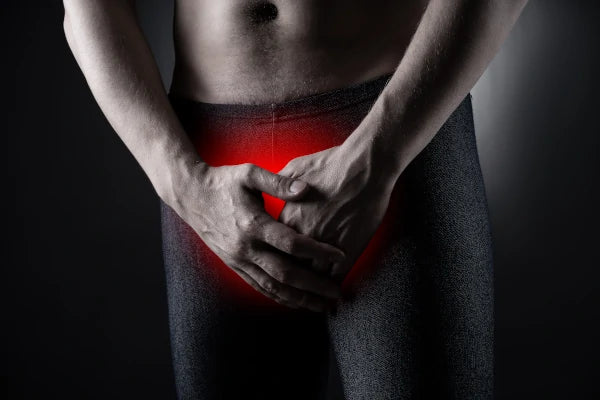
Symptoms of foreskin inflammation and acorn inflammation
Foreskin inflammation or acorn inflammation manifests itself in various symptoms that can vary depending on the severity of the inflammation. The most common symptoms include:
- Redness and swelling: The skin around the foreskin and glans may become red and swollen.Itching and burning: There may be severe itching and burning in the area of the foreskin and glans, which can be very uncomfortable.
- Pain: Pain during urination or sexual intercourse are also common symptoms.
- Discharge: Bacterial or fungal infection may cause an unpleasant discharge from the urethra.
- Odor: An unpleasant odor in the intimate area can also be an indication of foreskin inflammation or glans inflammation.
- Skin lesions: In some cases, small cracks or ulcers may form on the skin, which can cause pain.
- Narrowing of the foreskin: Foreskin inflammation can cause narrowing of the foreskin, which limits the mobility of the penis.
These symptoms should be taken seriously and not ignored, as they may indicate a serious condition. It is important to see a doctor if you suspect foreskin inflammation or acornitis and have the inflammation treated.
Effective measures for the treatment of foreskin inflammation and acorn inflammation.
In the event of foreskin inflammation or acorn inflammation, affected persons should act quickly to avoid further complications. However, the best treatment depends on the cause. In the case of a bacterial infection, antibiotic treatment is usually given. Fungal infections are treated with antifungals, while allergic reactions can be treated with avoidance of the trigger and/or application of cortisone creams. In some cases, creams containing steroids may also be used to relieve inflammation and itching.
However, there are some measures that can help with all forms of inflammation.
Penis cleaning
Cleaning the penis is especially important in case of foreskin inflammation or glans inflammation. The foreskin should be carefully pulled back and the glans thoroughly cleaned. It is advisable to avoid aggressive soaps and shower gels, as these can irritate the skin. Washing lotions and emulsions specially designed for the male intimate area are more suitable.
Antiseptic ointments
Antiseptic ointments can be helpful for bacterial or fungal infections. They are applied to the affected areas and help fight the infection. However, it is important to apply the ointment regularly and for a longer period of time to heal the inflammation completely.
Antifungals
In the case of a fungal infection, treatment with antifungals is required. These can be administered in the form of ointments, creams or tablets. It is important to carry out the treatment over a longer period of time to ensure that the fungus is completely killed.
Antibiotics
Antibiotics may be prescribed for bacterial infections. These help to fight the infection and relieve the inflammation. However, it is important to take the antibiotics for a longer period of time and not to stop taking them prematurely in order to avoid re-infection.
Anti-inflammatory emulsions
An anti-inflammatory emulsion such as GenitPlus helps to relieve symptoms of inflammation in the genital area and subsequently protects against further infections. Request a free Genit trial package now and try it out.
Prevention of foreskin inflammation and acorn inflammation
Good hygiene is the best way to prevent foreskin infections and glans infections. This includes daily cleaning of the penis with warm water and a mild soap. Condoms should be used during sexual activity to minimize the risk of sexually transmitted infections.
Wearing loose clothing, especially during sports activities, can also help reduce friction and sweating in the intimate area. It is also important to avoid using strongly scented deodorants and detergents, which can irritate the skin.
Product recommendation - GenitDuo
If you suffer from foreskin inflammation or glans inflammation, using GenitDuo can be an effective way to relieve your symptoms. Genit is a natural, herbal product made from high quality ingredients specifically formulated to relieve intimate discomfort.
GenitPlus contains tea tree oil, a well-known antiseptic that can help fight bacteria and fungi. Capparis Spinosa Extract helps reduce inflammation and prevent itching, while Ficus Indiaca Extract moisturizes and soothes sensitive skin.
GenitMen then ensures optimal prevention against the recurrence of inflammation in the intimate area by means of selected ingredients such as almond oil, orange oil, pomegranate extract and Chamomilla Recutita extract.
GenitDuo - For all cases
GenitPlus helps fight intimate inflammation
GenitMen for the daily shower routine
In duo 15% cheaper than individually
- Regular price
-
CHF 39.90 - Regular price
-
CHF 46.60 - Selling price
-
CHF 39.90
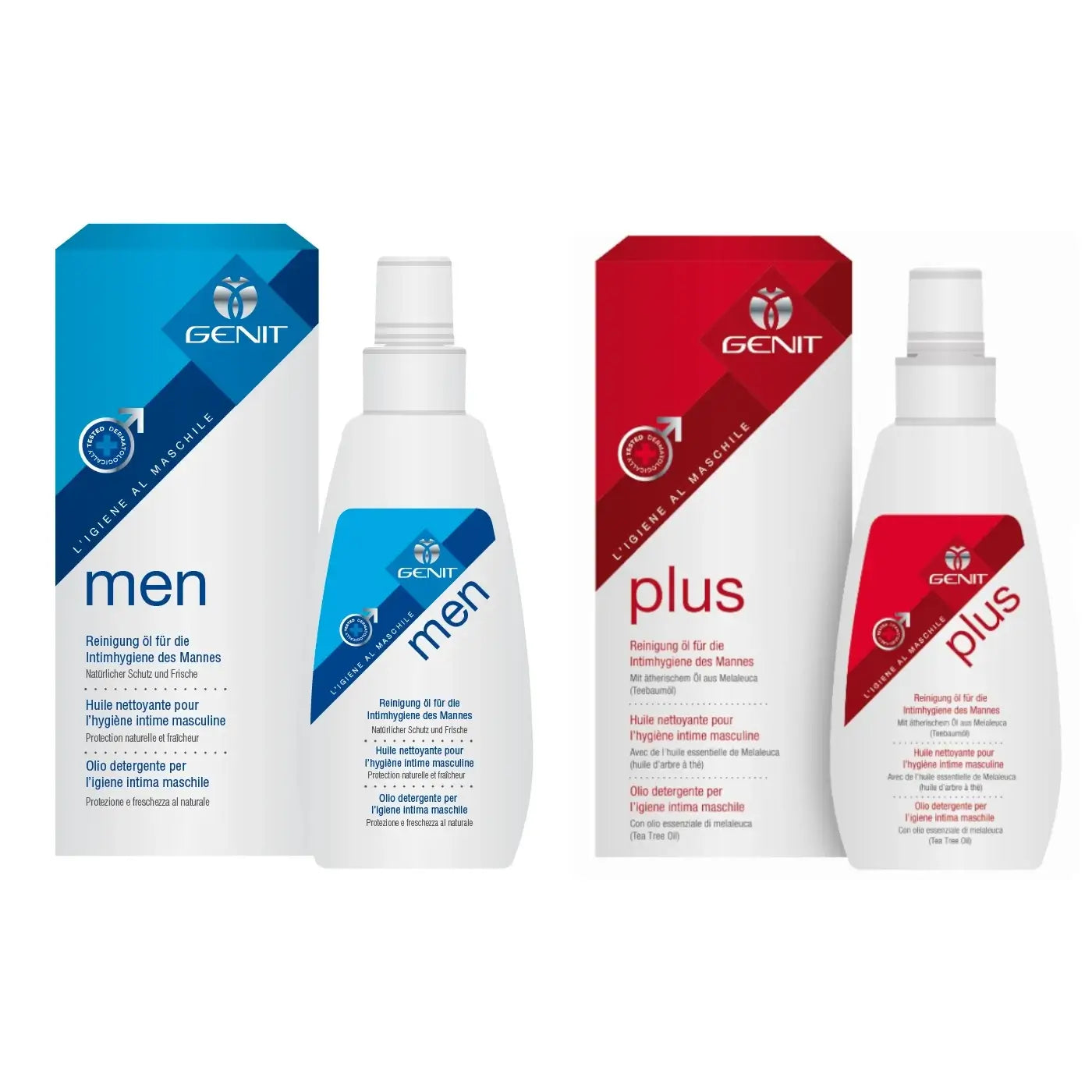

Sources: MSD Manuals, 'Balanitis' (Wikipedia), Apotheken-Umschau .







